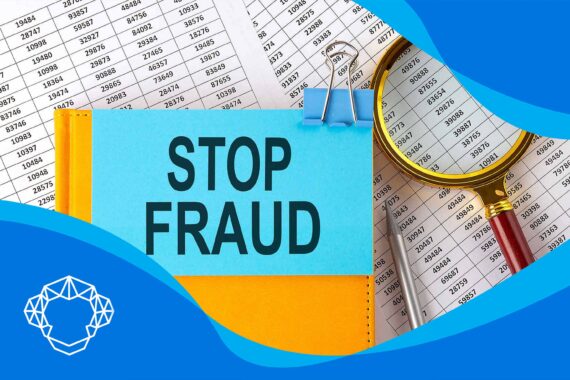If you’re a business owner, you know that claiming a tax deduction is an important part of any financial plan. You must pay attention to your taxes and know which small business tax deductions you are eligible for.
Although you may think you have much bigger issues to think about, like improving your customer service and experience, as well as products, this is an important step to take. It could save you hundreds and thousands of dollars, and that is something you should pay attention to. A tax deduction lowers an organization’s tax liability by lowering its taxable income. What can you write off on taxes for LLC? For a small company? Check out our list to find out.
What Can a Small Business Write off on Taxes?
Since the IRS doesn’t have lists of tax deductions for a small business or different types of businesses, they say the expense must be ordinary and necessary. Ordinary means common in your industry or trade, and necessary means needed to run the company. Also, the expenses must be for the job, not personal. If you need services or items for your job to survive, these charges fall into the small business tax deductions checklist. Here you can find a small business expenses list that meet these requirements.

Vehicle Expenses
Whatever your initial small business idea was, most businesses own and use a vehicle, whether it’s a car, a truck, or a van, to get things done. Whether it’s a meeting with a client, or transporting equipment needed for work, as long as it’s work-related, if you have proof that the vehicle is being used for work purposes, you can deduct those costs. So, our advice is to keep a record throughout the year to prove that the use of the vehicle is work-related. You can choose to deduct the actual cost, which includes gasoline, tolls, maintenance, and parking, or you can choose the IRS standard mileage rate.
Traveling for Work
Many owners and their employees travel for work, spending a lot of time at airports. The good news is that you can write off most of those travel charges for you and your employees if there is a working purpose behind the trip. To qualify, a work trip must last longer than a workday and must be away from your place of work. Also, to be considered a work trip, you must actually engage in work activity and have it planned beforehand. Meeting with your clients, finding new customers, and learning new skills all fall into this category. You should remember to keep all of the receipts and complete records of all your work activities during the travel. The cost of travel to your destination and back, and the cost of transportation, spending the night, and meals are all deductible travel charges.

Employee Benefits and Salaries
Payments to your employees, which include salaries and wages, bonuses, and commissions are all deductible. Also, contributions to your employees’ retirement plans, education assistance, and other benefit programs and charges fall under this category. If you have any contract labor – freelancers or independent contractors, the charges to that labor are also deductible.
Meals with Clients
Having a meal with your clients is deductible by 50%. On the other hand, the charges of providing meals for your employees at a holiday party or a team-building picnic are fully deductible.

Equipment Depreciation
When you purchase new equipment and other work-related assets, depreciation rules require you to spread the cost over the years you will use them. The IRS gives you several ways to write off the full cost in one year. These assets must meet several criteria:
- It must be used at work or produce income during the year of purchase,
- The useful life of this asset must last for at least a year,
- It must wear out and lose value over time.
There are a few things that don’t count as an asset:
- Air conditioning or heating units,
- Inventory,
- Land.
You also can’t write off an amount greater than your income.

Deductions on Other Expenses
Here are some other minor write-offs on this list that are often overlooked or can be applied in limited circumstances:
- Bank fees. If you have separate bank accounts and credit cards tied to your job, all the annual and monthly transfer fees and service charges are deductible.
- Moving expenses write-off – although this write-off was canceled by the Tax Cuts and Jobs Act in 2017, there are still some situations or states where you can be eligible. If you are a member of the military, and you have to move due to military orders, you can still deduct the charges of your relocation. And the seven states in which you can still apply for the write-off are New York, California, Arkansas, Hawaii, Massachusetts, New Jersey, and Pennsylvania.
- Education costs. You can write-off costs of the education and training of your employees, and you can also write-off the cost of your own education if it’s work-related.
- Cancellations. If you, for example, had to book a trip, and you had to reschedule, the airline rescheduling fee, as well as the hotel deposit, is all deductible.
- Supplies. The cost of items used in your job, such as workplace supplies or cleaning supplies for a cleaning service, are all fully deductible.
- Utilities. Everything you spend on utility bills related to your work is fully deductible. You can fully write off the electricity bill for your facility, and the same goes for your phone bill.
- Repairs and maintenance. You can write off charges on any maintenance and repair related to your work. On the other hand, costs that add to the property’s value are usually recovered through depreciation.
Tax Deduction on Insurance Premiums
If you are paying premiums for any type of insurance to protect your job, like fire insurance, credit insurance, liability insurance, or car insurance, for the vehicle you use while working, it falls under tax deductions for small business owners.
On the other hand, there are two rules for health insurance coverage. You may qualify to claim a credit for up to 50% of the premiums that are paid for the employees, but for a self-employed individual, the insurance premiums are written off on the owner’s personal return.
Home Office
It is possible to write off a portion of your home office charges as job charges. In order to claim this write-off, owners must use their home office regularly and exclusively as their place of work, where they meet and deal with clients and customers. You can write off direct (painting walls in the office) and indirect charges, such as percentage of rent or mortgage interests that reflect the percentage of the work use of the residence. Don’t be afraid to take advantage of this write-off if you qualify. The IRS won’t be viewing a home office write-off with the same suspicion as in the past, mostly because more than a half of businesses in the U.S. are reported to be home-based. Watch the following video to get some idea how to save up on your home office.
Advertising and Marketing-Related Expenses
You might be using social media advertising, billboards, and have sent business cards to your clients and potential new ones. Any type of cost used for advertising is fully deductible.
Federal and Other Taxes
You can’t write off federal income taxes, but there are still plenty of other taxes to write off on your tax return. You can, for example, write off $10,000 of sales taxes, state and local income ones, real estate, and personal property taxes.
Startup Costs for a Business
You can write-off up to $5,000 in startup costs, and $5,000 in organizational costs incurred in the first year of working. But this only applies if, in either case, the costs didn’t exceed $50,000.
Convenience Fees
You can write off credit card convenience fees charged by the credit card companies. A convenience fee is any non-standard use of a credit card that credit card processing companies charge a special fee for.
Professional Services
Legal and professional fees that are directly tied to your work and are necessary also fall under write-off. These include costs charged by lawyers, accountants, tax preparers, bookkeepers, and other legal services.
Rent Expense
If you are renting equipment for your work or an on-site location, you can deduct the rental payment as a work expense. And if you have a home office, keep in mind that the write-off does not include the rent for your home, although it can be written off as part of your work charges.
Debt Interest
If you’ve taken out a loan for work purposes, whether it’s a line of credit or a mortgage, you can write off the interest you’re paying on that loan from your taxes.

What Business Expenses Can I Deduct Without Receipts?
Although it’s best to try and keep all the documentation and receipts, there are some situations in which you can get by without them. If you’re traveling and having meals and other non lodging incidentals, you don’t need a receipt unless the cost is $75 or more.
If you have a vehicle that you use for your work, and you have chosen to write off charges by the IRS’s standard mileage rate, you don’t have to keep receipts. You only have to keep a log of your charges, and the IRS gives you a standard per-mile write-off, which is 55.5 cents. In the video below, you can find the summary on deductions, benefits, and advantages to help you lower your rate, how a small business pays taxes, and what can be done to get a deduction.
Other Ways to Save Up
We have managed to save up tens of thousands of dollars for our client, Cross Country Moving Company, in credit card processing services fees alone. This came as a given especially in the time of the coronavirus when every dollar counts.
Imagine reducing merchant services processing fees by 20-50%. Credit card processing companies had a monopoly on the fees so there wasn’t really a huge difference in which one you would choose. This was also the driving point for Merchant Chimp – we wanted to make our own merchant processor and cut these ridiculously high fees in half.

Bottom Line – Talk to a Professional About Small Business Tax Deductions
By following these pieces of advice, you should be able to save some money. Write-offs are an essential way to minimize the amount that you have to pay. Track all of the expenses and charges that are work-related thoroughly with your accountant, and be sure you are using every legitimate way to save up through write-offs. After all, that’s what all of the most successful small businesses would do.







